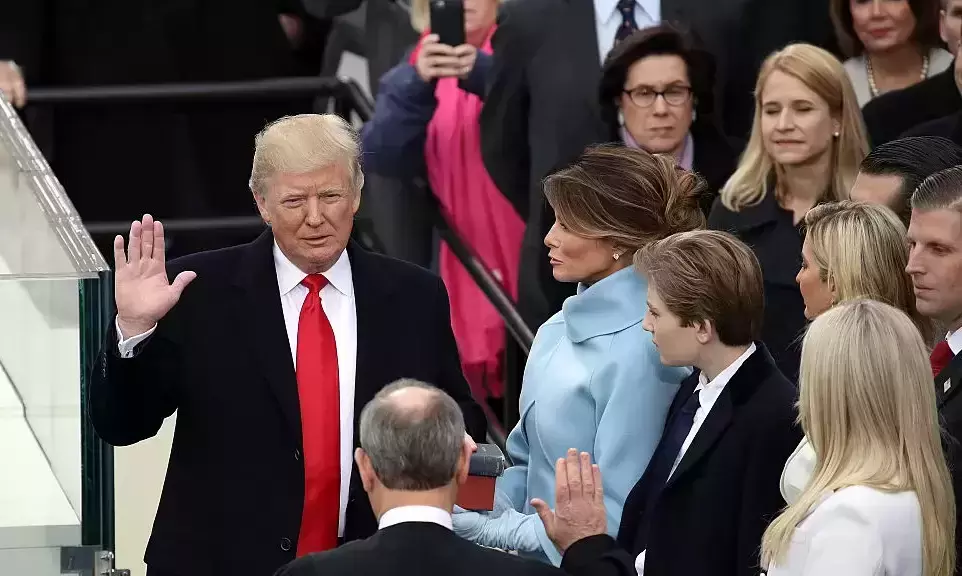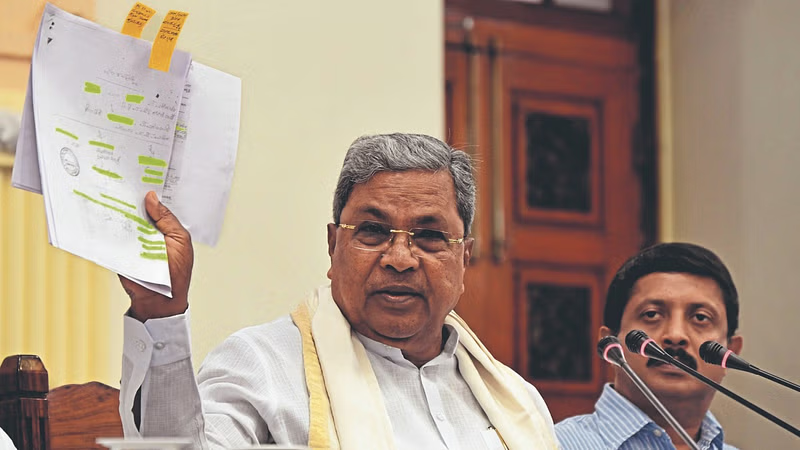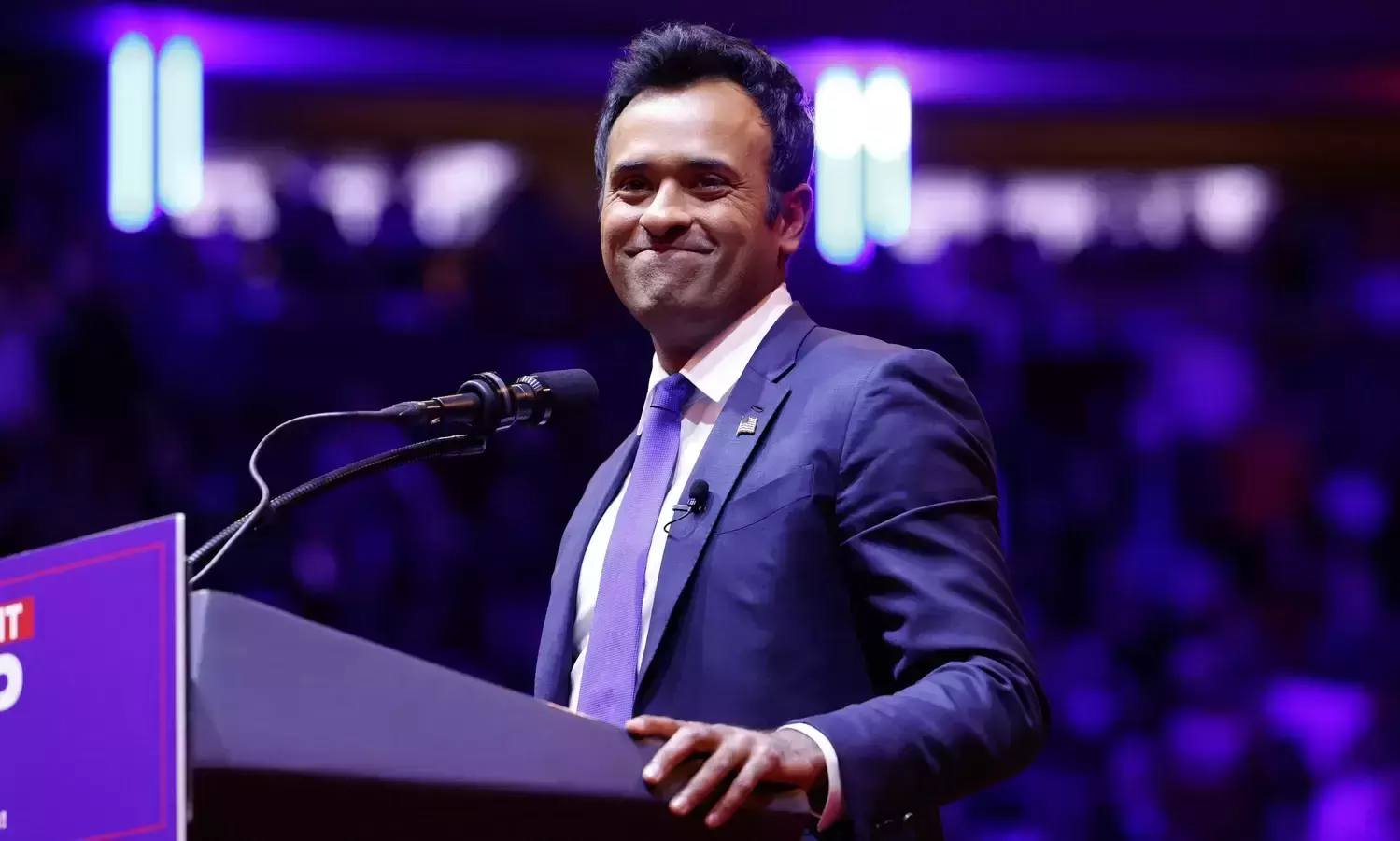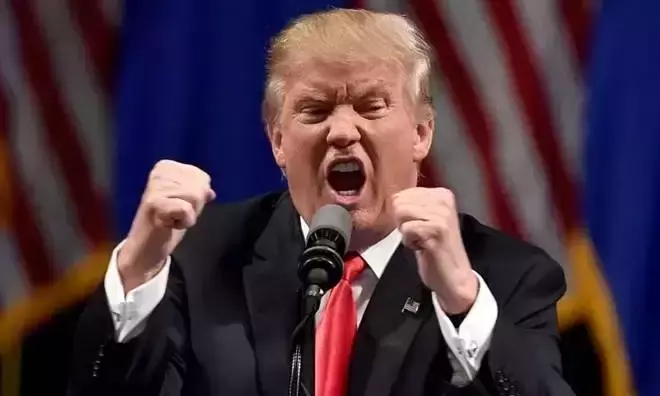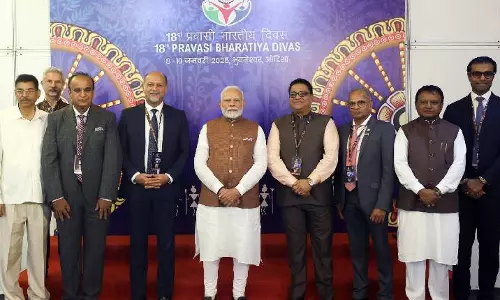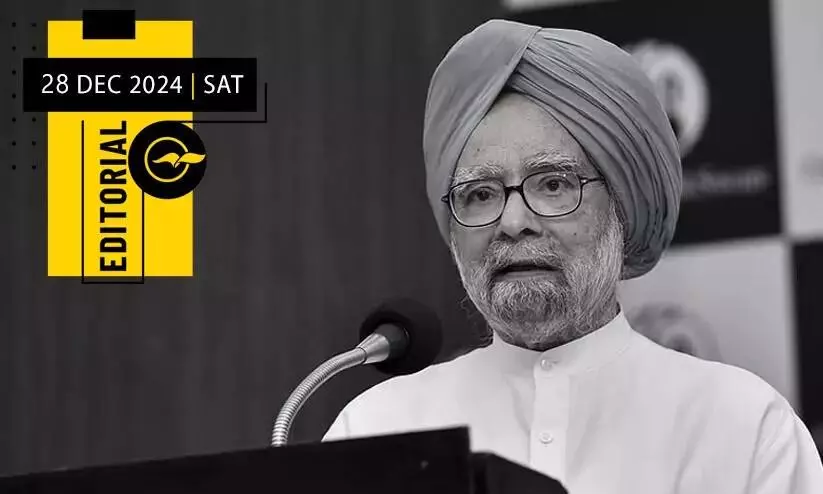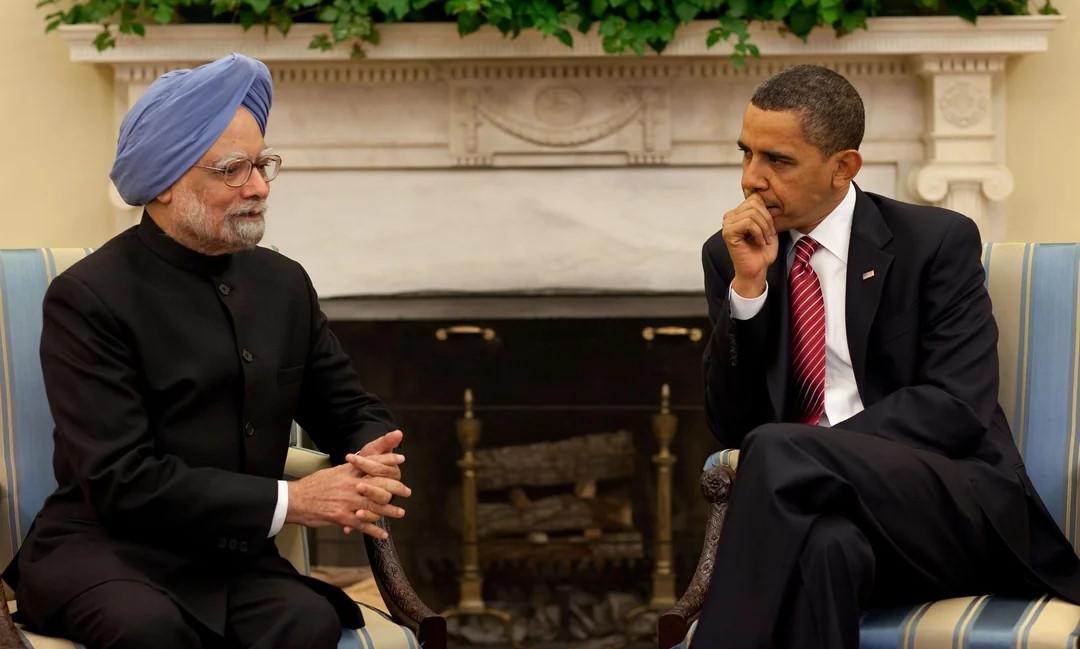
Manmohan Singh: A statesman par excellence
text_fieldsThe country has lost a leader who proved his genius in politics, power, and governance through his own achievements through the demise of Dr Manmohan Singh, former prime minister. For that reason his death has left a void. Even those who sank him in scandals during his tenure have turned into his admirers. It was after witnessing such politics that Dr. Singh quit active politics and now from life. Unlike the typical partisan politicians, he brought a new dimension to governance with his expertise acquired from higher education and public service. In his first speech in Parliament as the Finance Minister in Narasimha Rao's government in 1991, Manmohan Singh quoted Victor Hugo, saying that no power on Earth can stop an idea whose time has come. With this quote, he introduced economic liberalization as a cure for a nation on the brink of economic collapse. India, which had been following a socialist path, thus shifted to a new economic policy under Narasimha Rao's government, with Manmohan Singh as the architect of these reforms. However, the accusation arose that Singh and the Congress government took the country from a socialist path to a capitalist one through globalization. The loans from the IMF and World Bank, the privatization of public sector undertakings, and the opening up of the Indian market to foreign investment were all seen as deviations from traditional practices and a betrayal of the welfare state concept. The abrupt shift to capitalism adversely affected the lives of ordinary people, leading to widespread protests against the new economic reforms. Despite this, Manmohan Singh remained steadfast in his conviction that there was no other way forward for a collapsing nation. This was one of the main reasons for the failure of the Narasimha Rao government in 1996.
However, none of the subsequent governments was able to reject these new economic reforms or introduce a new alternative. Even the left-wing states, which were staunch opponents of these economic policies, followed the path shown by Manmohan Singh. With this in mind, Dr. Singh finally said that no matter what the media or political opponents propagated, history would remember him gratefully. No one in India has been able to envision a path different from what he espoused. Having been recognized as one of the most learned and skilled administrators in the world, Dr Singh, who had excelled in both academia as an economics professor at world-class universities and in administration as the Prime Minister's economic advisor, Reserve Bank Governor, and Vice Chairman of the Planning Commission, accelerated his reforms upon becoming Prime Minister. It was during this period, in 2007, that India's GDP growth rate reached an all-time high of nine per cent, making India the second fastest-growing economy in the world.
Therefore, the hallmark of Manmohanomics was economic growth and development rooted in social commitment. While accelerating privatization and opening up the Indian market to foreign investment, Manmohan Singh was also the one who introduced the Mahatma Gandhi National Rural Employment Guarantee Act and other social security schemes. According to statistics, these systems were able to lift about 140 million people above the poverty line. To promote transparency and credibility in governance, the Right to Information Act was introduced. Manmohan Singh also implemented reforms such as the Right to Education Act, the Aadhaar card, and the RuPay card. His vision was that for the country to rise in development, social progress must encompass all levels. He believed that development was possible only if programs were implemented to uplift the country's Dalits, backward classes, minorities, women, and children. It was his belief that it was necessary to ensure that the Muslim minority also benefits from the fruits of development to achieve the nation's development and progress. It was with this in view that the Manmohan Singh government appointed Justice Rajinder Sachar to study the backwardness of Muslims and submit a report.
The India-US nuclear deal was a part of rewriting India's foreign policy in the 'Manmohan line'. The left, which had been supporting the UPA government from the outside, withdrew its support, opposing the decision to move India away from the non-aligned movement towards the American camp. However, Manmohan did not yield, citing long-term national interest. He won the trust vote the government faced over the nuclear deal, proving he was capable of political strategy-making too. While he was praised for his clean politics, allegations of corruption against his government eventually ousted him from power. Though the accusation of economic mismanagement was levelled against Manmohan Singh himself, a decade later, it was proven to be false. The dismal performance of the Modi government that followed established the relevance of Manmohan's reforms. There is no doubt that Manmohan Singh, as a visionary and socially committed ruler, will achieve immortality in Indian history.





